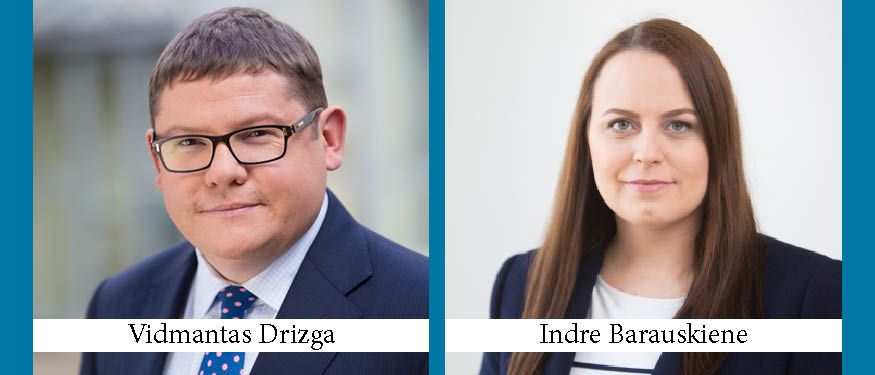Lithuania is currently finalizing its internal debate on the transposition of Directive 2014/26/EU on the collective management of copyright and related rights and multi-territorial licensing of rights in musical works for online use in the internal market (the “Directive”), which will change the Law on Copyright and Related Rights of the Republic of Lithuania (the “Copyright Law”) and will have an enormous impact on all stakeholders: collecting societies, right holders, and users.
One of the main innovations of the upcoming amendment is the establishment of multi-territorial licenses for online rights in musical works – an instrument never before used in Lithuania. This will meet commercial users’ need for a licensing policy that corresponds to the ubiquity of the online environment and is multi-territorial. In this respect the amendment to the law almost literally transposes the main principles set forth in the Directive – the main provisions of the licensing agreements, agreements between collective management organizations for multi-territorial licensing, transparency, the accuracy of multi-territorial repertoire information, and others.
Transparency of the repertoire is new in itself, and it will be extended not only to cover multi-territorial licensing issues but also established as a general principle capturing collective management. Before the Directive’s implementation none of the collecting societies published their repertoire, which created heated debates in the market as to whether tariffs unilaterally approved by organizations indeed covered “all rights” and whether they were economically effective.
Amendments to the Copyright Law also abolish the requirement that a collecting society can be established only as an association. Now the law will allow any type of legal establishment as long as at least one of the following conditions is met: (i) the organization is owned or controlled by its members; and/or (ii) it is organized on a not-for-profit basis. This will allow collecting societies to obtain revenues from investments, subject to the obligation to ensure the security, quality, liquidity, and profitability of the portfolio as a whole.
The amendments to the Copyright Law will also provide more detailed requirements regarding the management, supervision, and control of the collecting society. The new set of rules should ensure more transparency in respect to disbursement of revenues, allowed deductions, and reporting. This is extremely important, as collecting societies in Lithuania in the past faced heavy criticism in respect to the transparency in the distribution of the amounts to the right holders, which led to the establishment of several new competing collecting societies. Having two collecting societies administer the same area of rights (for example, performers’ rights) poses extreme challenges for users, which are not able to get a license for all rights they use and are forced to expose themselves to the risk of possible claims, because clearing rights with two (or even more) competing societies is burdensome and expensive.
The amendments to the Copyright Law also provide a detailed procedure on how the licensing agreements with users are to be concluded, by setting forth when a request should be provided, how fast a collecting society has to reply to it, etc. In this respect one alarming element should be mentioned – new amendments do not provide for mandatory collective negotiations for mandatory administration of rights, allowing them only upon mutual agreement between the users and the collecting societies. This raises the question whether transparency in respect of the user will be ensured. Previous practice shows that multi-party negotiations for rebroadcasting license tariffs, for example, between collecting societies on one side and all cable rebroadcasters on the other were a success, with over 50 stakeholders able to reach a mutually beneficial agreement. However, if under the new regime this option will not be mandatory, it is possible that transparency in general will be compromised.
Finally, amendments to the Copyright Law provide an alternative dispute resolution institution – the Expert Commission to which disputes between collective management organizations, members of collective management organizations, right holders, or users may be submitted. However, this dispute resolution procedure will not be mandatory and any party may still apply directly to the court.
Lithuania is under a tight timeframe, since the transposition deadline set in the Directive has already lapsed. Even though the amendments to the Copyright Law still have to be adopted in the Seimas (the Parliament of Lithuania), all stakeholders and responsible institutions have already coordinated their positions. Thus it is unlikely that the final text of the law amending the Copyright Law will change dramatically.
By Vidmantas Drizga, Partner, and Indre Barauskiene, Senior Associate, Tark Grunte Sutkiene

